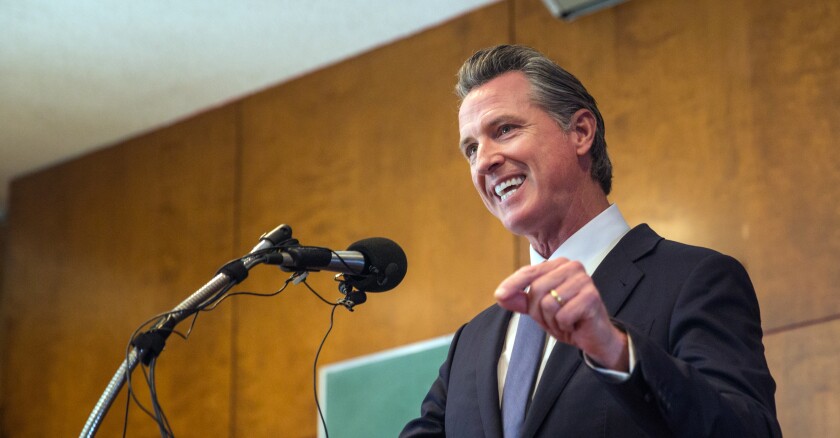Several pieces of technology-focused legislation are waiting for a signature or veto from Gov. Gavin Newsom as the deadline to approve new laws nears.
Among the more prominent pieces of legislation is Sen. Scott Weiner’s Senate Bill 53, also known as the Transparency in Frontier Artificial Intelligence Act. Earlier this week, Newsom announced that he plans to sign an AI bill into law despite a last-ditch lobbying effort from tech industry groups — with more than $200 million of funding between them — to sway his decision. Although Newsom didn't explicitly say which bill he intends to sign, he referred to "a bill that's on my desk" that "strikes the right balance."
The bill, in broad strokes, would require new security protocols related to AI frontier models, new whistleblower protections for those working with these models, and would create a consortium, called CalCompute, within the Government Operations Agency (GovOps).
The tech industry — largely big names like OpenAI and Meta — has been vocal about their opposition to the legislation, citing concerns about duplicity and unnecessary red tape. Opponents to the bill advocate for a more cooperative approach.
“We believe that states, if genuinely interested in safety, should encourage and incentivize frontier model developers to partner with those agencies best equipped to conduct the most sophisticated and advanced reviews,” OpenAI Chief Global Affairs Officer Christopher Lehane wrote in a letter to Newsom.
It’s unclear when he plans to put pen to paper, but it would need to happen before the Oct. 12 legislative deadline.
Senate Bill 7, meanwhile, would put new guardrails around automated decision systems (ADS) related to hiring. Under the legislation, employers would be required to notify applicants if the ADS is being used to make employment-related decisions, not limited to hiring, firing, discipline, etc.
Senate Bill 446 relates to data breach notifications. It would require a data breach disclosure within 30 days of the discovery of the breach, with certain exceptions made to accommodate law enforcement investigations. The bill was very well received in both houses and in multiple committees, according to the vote history.
Assembly Bill 979 also passed both houses and committee review with flying colors on its path to the governor’s desk. This bill would mandate that the California Cybersecurity Integration Center create the “California AI Cybersecurity Collaboration Playbook” with the help of the Office of Information Security and GovOps.
The center would be tasked with reviewing “federal requirements, standards and industry best practices, as specified, and to use those resources to inform the development of the California AI Cybersecurity Collaboration Playbook," which would be due by Jan. 1, 2027.
Assembly Bill 853, also known as the California AI Transparency Act, would establish new rules for generative AI systems with more than 1 million monthly visitors or which are publicly available within the state. Under the bill, platform owners would need to provide free tools capable of determining “whether image, video or audio content, or content that is a combination thereof, was created or altered by that person’s generative artificial intelligence system.” This bill would also set rules around AI disclosures on some websites and outline new requirements for optional “latent disclosures” in audio, video and photographic “capture devices.”
Editor's note: This story has been updated to clarify the exact nature of the governor's remarks about pending legislation.
Newsom Vows to Sign AI Bill, Other Tech Bills Await Action
Gov. Gavin Newsom promised this week to sign an AI bill, using descriptions that would fit Senate Bill 53. The AI legislation was the target of a lobbying campaign from some of the biggest names in the tech industry.

Shutterstock







